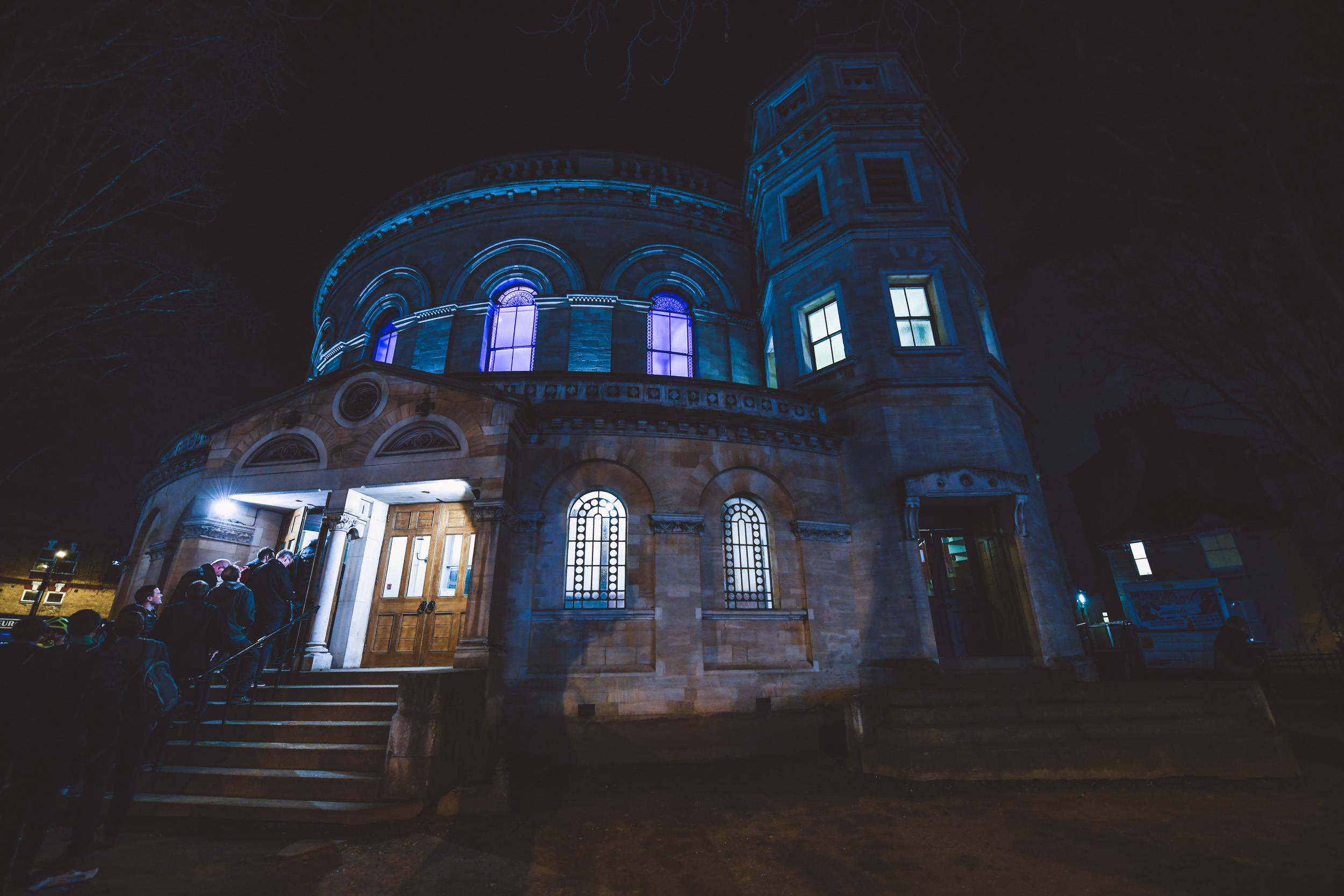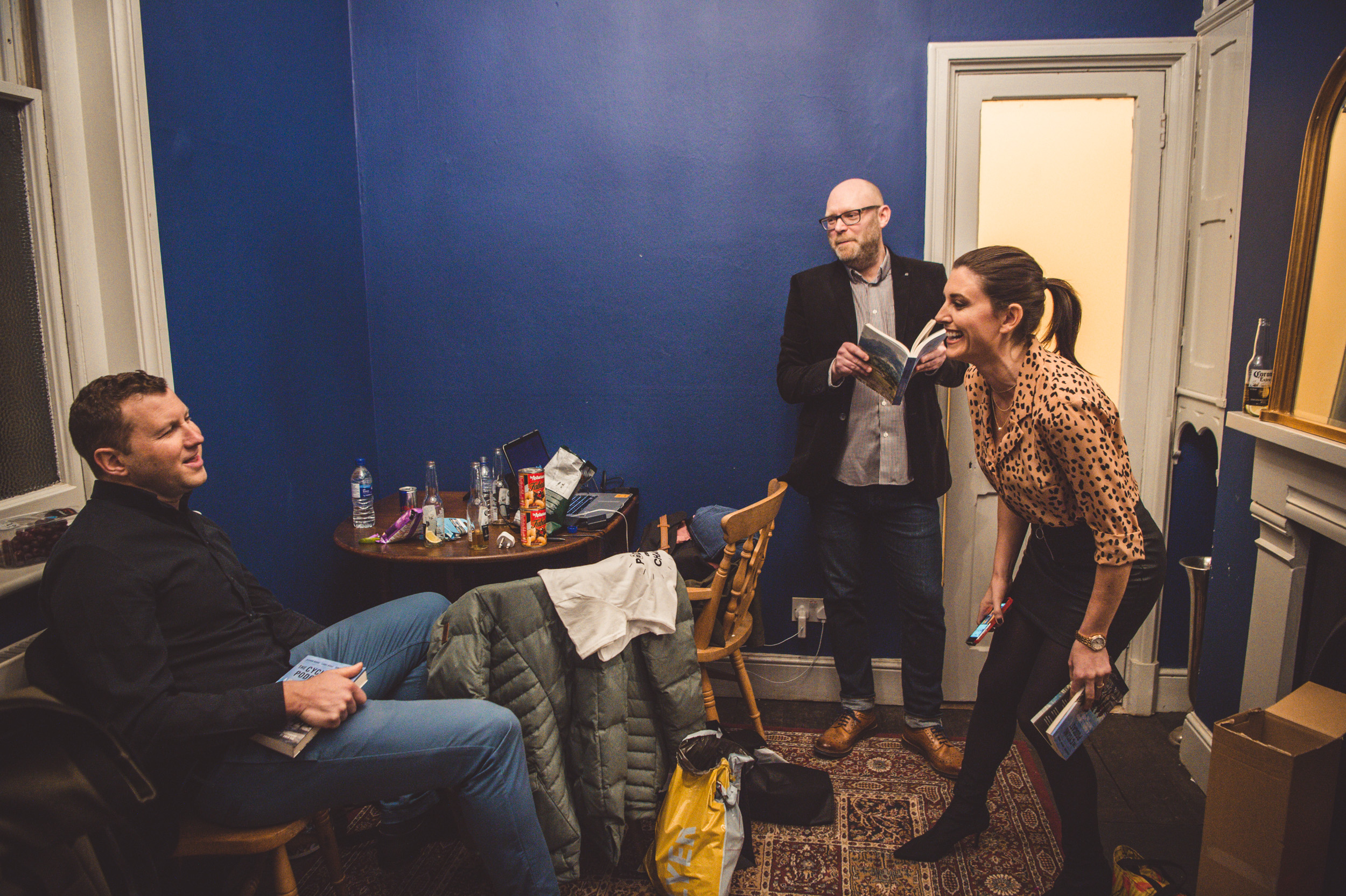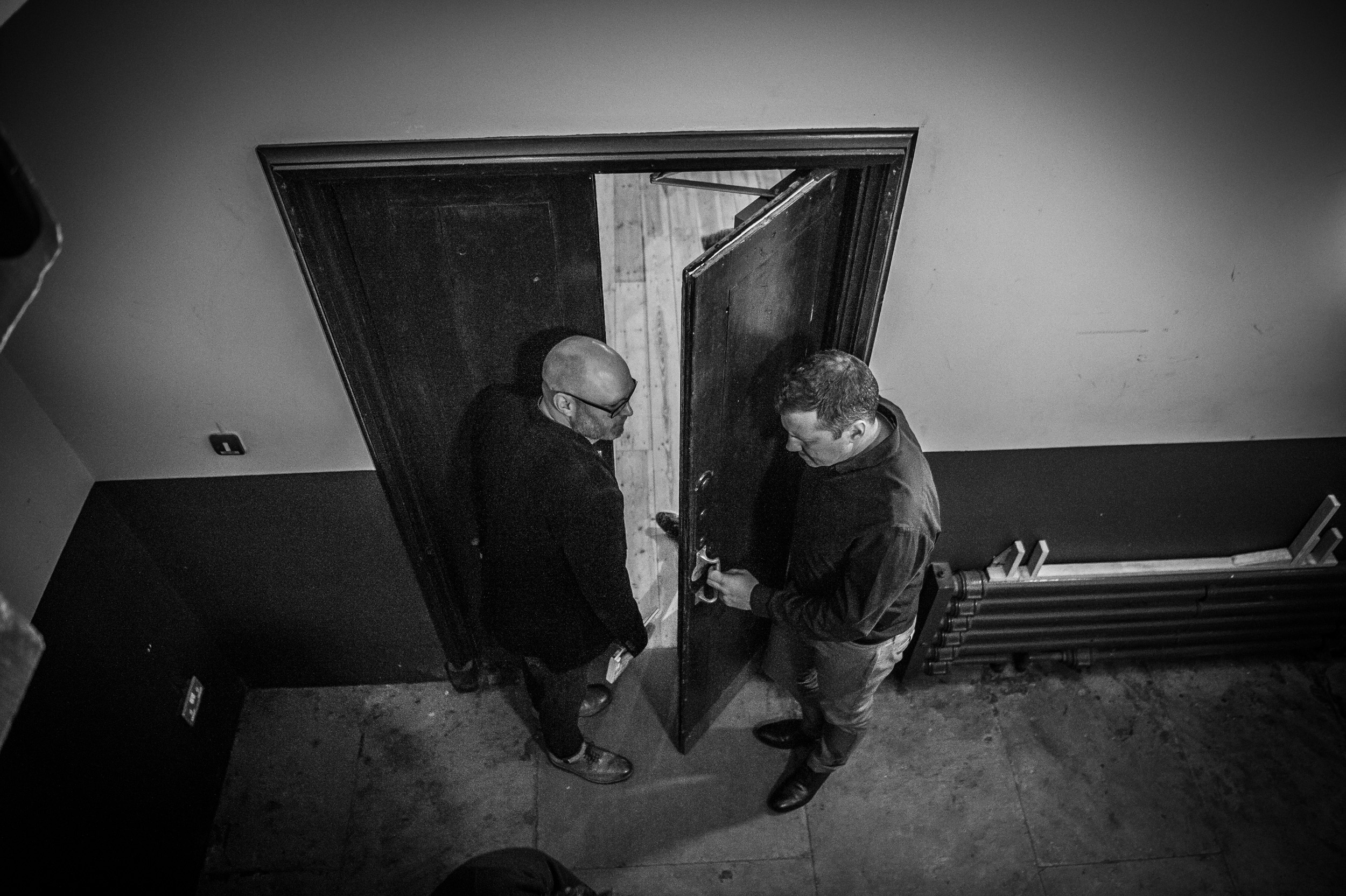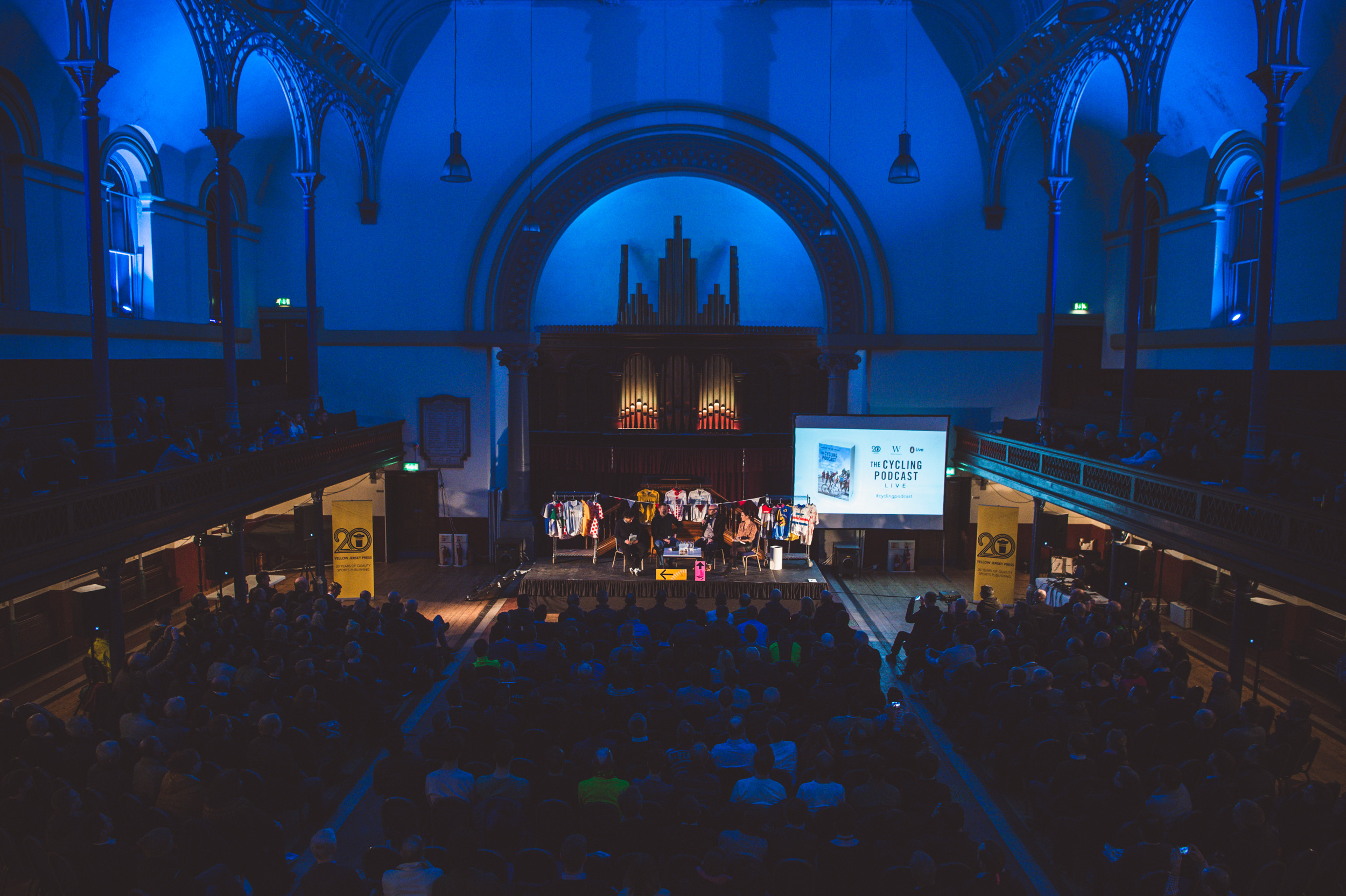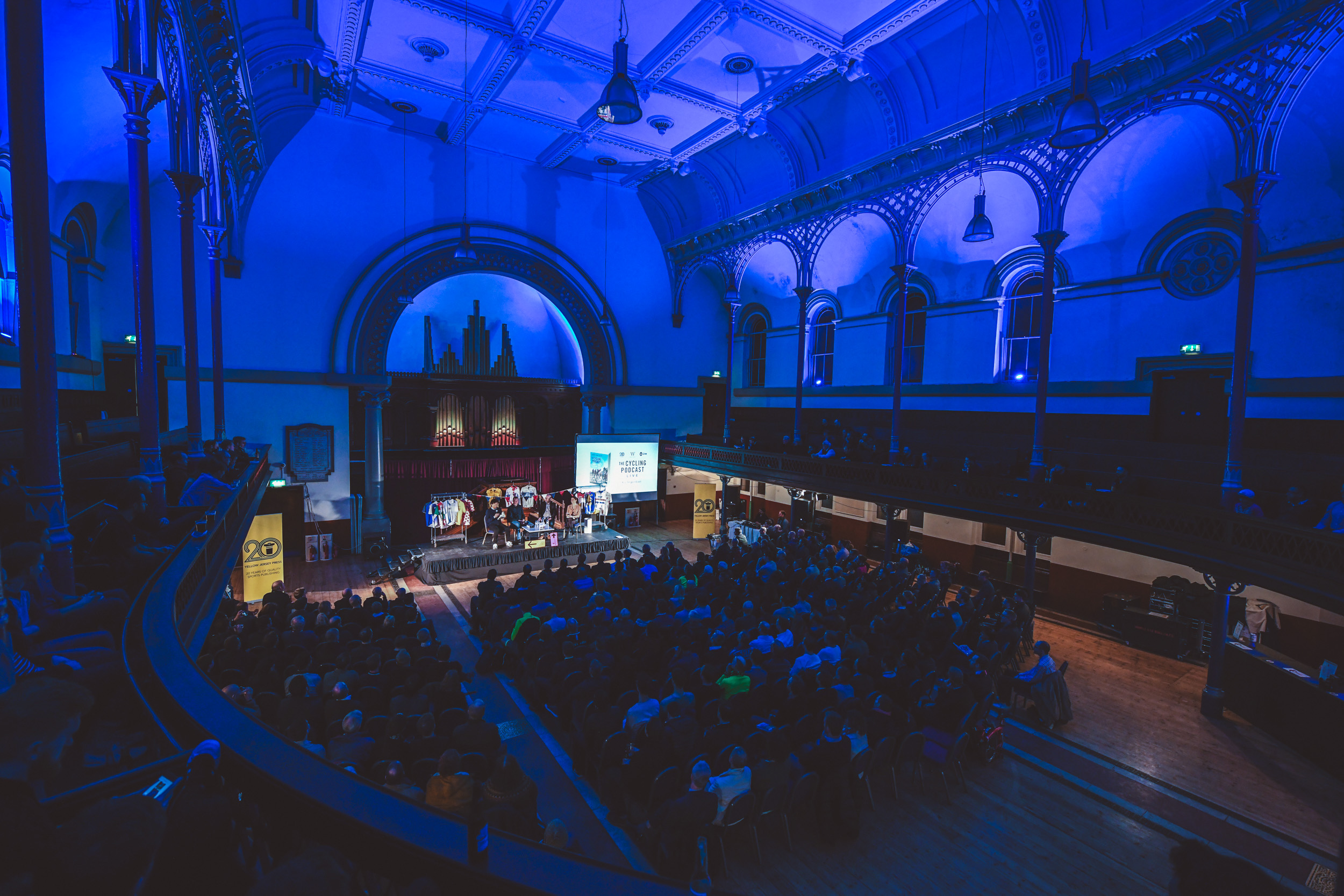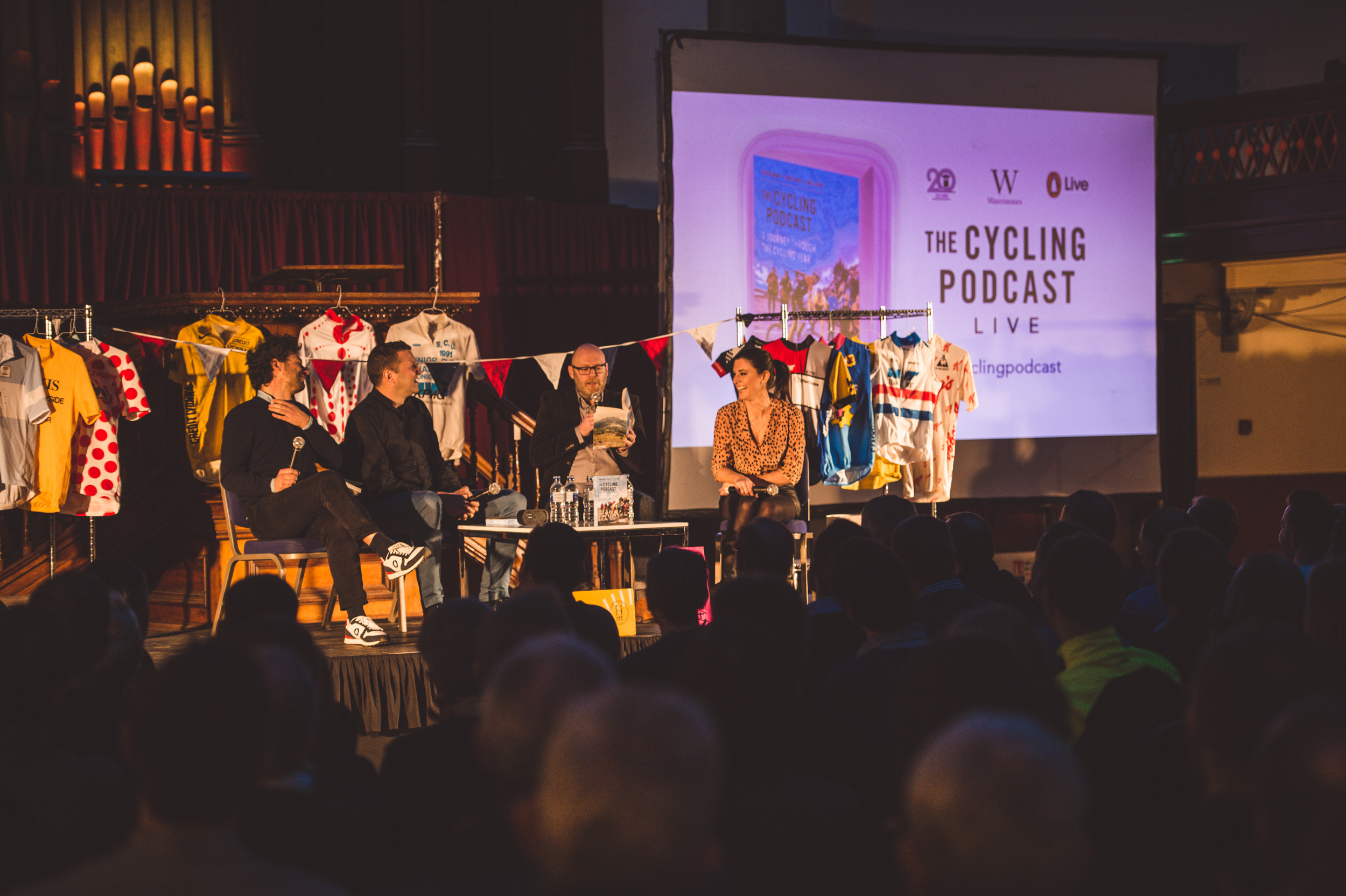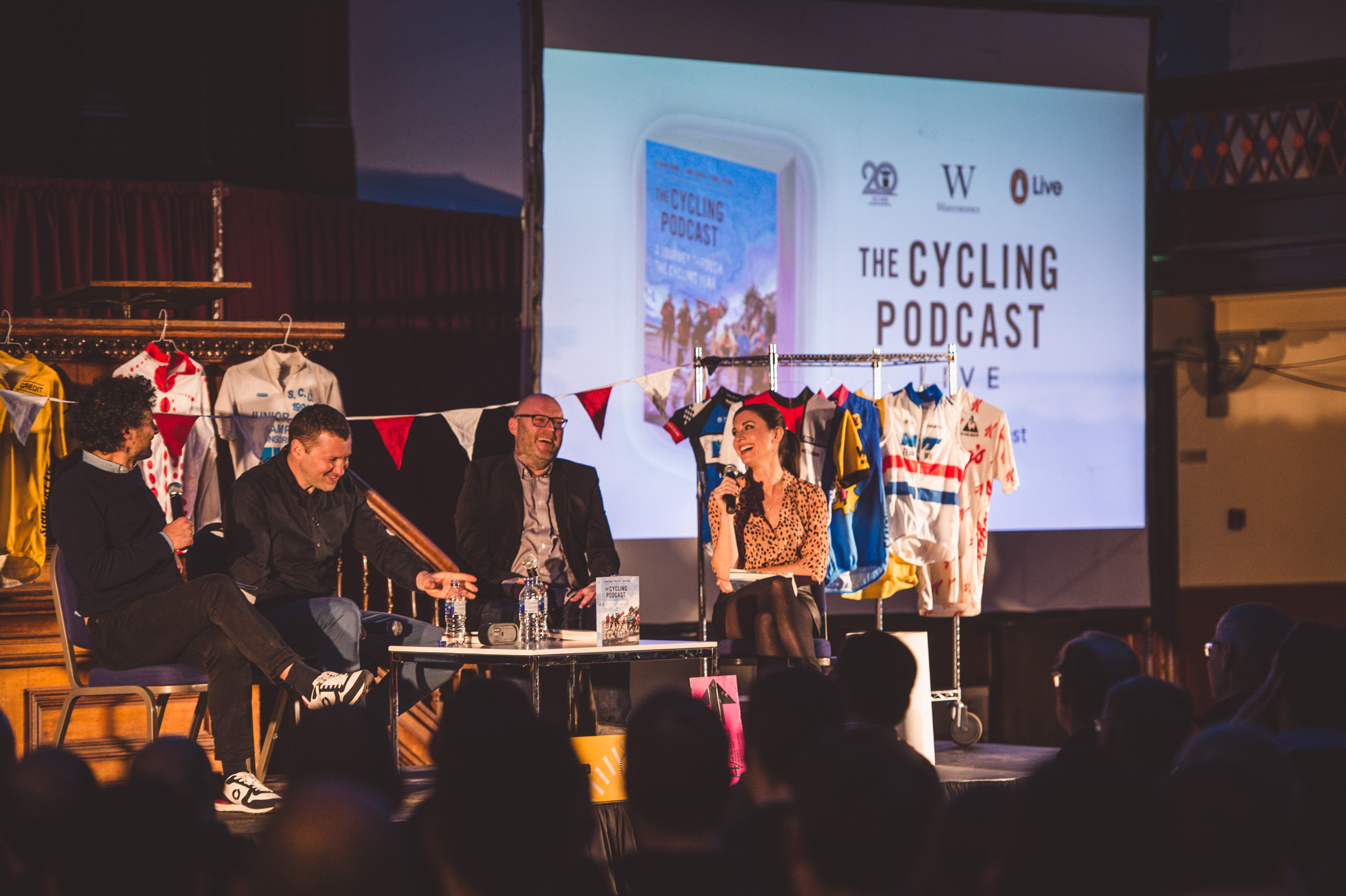In the autumn of 2009, planning for Team Sky was at an advanced stage, recruitment was almost done and the big launch at Millbank Tower in London was only a couple of months away.
Excited by his new team, Dave Brailsford had done a lot of media and one line stuck out to me. He spoke of Team Sky having a zero tolerance policy on doping and that they would not hire anyone with ‘an association with doping’.
For context, this was late 2009. Lance Armstrong had come back and finished third in the Tour de France. The background noise about his doping had yet to hit the mainstream. Floyd Landis had not yet blown the whistle, Jeff Novitsky and the federal investigators had not started to take an interest.
However, cycling had lurched from one doping crisis to the next. In 2006, Operación Puerto, the biggest doping scandal since the Festina Affair eight years earlier, had snared the two contenders vying to inherit Armstrong’s crown, Jan Ullrich and Ivan Basso, and many others. Landis then won the 2006 Tour de France before failing a dope test. Michael Rasmussen got to within days of winning the 2007 Tour when he was caught in a web of his own lies.
So Brailsford’s public statements, and then the one about Team Sky winning the Tour de France with a clean British rider within five years, interested me. Given the landscape of professional cycling at that time I admired the ambition but wondered about the practicalities.
I had asked Brailsford for an interview about British Cycling and Team Sky, both of which he managed, and we arranged to talk at Manchester velodrome during the track World Cup at the end of October 2009. When we met at the appointed time, we walked up into the seats in the velodrome and sat near to the Reg Harris statue, away from the people who were watching the afternoon session’s racing but in public where we could possibly be heard. I explained that I had wanted the opportunity for a more formal conversation. He said he wanted to watch the racing, which was fair enough considering he was British Cycling’s performance director, so we rearranged. We would talk in his office for around 45 minutes before the start of the evening session and later on that day I arrived with my dictaphone and a list of questions.
I was interested in several things – how the relationship between British Cycling and Team Sky and their respective staff would work, the structure of the team’s holding company Tour Racing Limited, who owned it, who was on the board and how it linked to both Sky and British Cycling, as well as how Brailsford envisaged handling running the national team in the run-up to the 2012 Olympics in London while trying to win the Tour de France with Team Sky.
The conversation was business-like. I had the impression that Brailsford was happier in the huddle with journalists, or talking off-the-record, where he perhaps felt he could speak his mind more freely. That’s not unusual. Interviews, particularly ones like this, are a strange and unnatural construct. In hindsight, an informal conversation, switching between on and off the record would probably have been more instructive and I’d probably have learned more but that was the approach I took at the time.
As the questions went on the atmosphere became a little more tense. There’s nothing wrong with that, by the way, some interviews go that way for any number of reasons. By the end, though, things were pretty frosty and Brailsford brought our conversation to a close bang on 7pm when the evening session was due to start on the track.
I have chosen to reproduce here the final part of the interview, where I specifically address Brailsford’s recruitment policy and the unequivocal statements on anti-doping. This interview was edited for length and published by Cycle Sport magazine a month or so later.
Lionel Birnie: When you started out you had a clean sheet of paper and 12 or 18 months of planning to put it all together. With that clean sheet of paper, the first thing you set out was you were going to be a clean team, anti-doping is going to be at the core of Team Sky, no grey areas of compromise, so what was the recruitment policy for management and riders?
[Brailsford reaches for a huge folder with Team Sky's application for a UCI ProTour licence in it and starts referring to it.]
Dave Brailsford: Recruitment criteria. Certain characteristics should be seen as non-negotiable. English-speaking, no association with doping, enthusiastic and positive, fit and healthy, open to innovation, willing to try new things – massively important to us – not averse to change, excellent inter-personal skills, must be able to work in a rider-centred programme, supporting and mentoring not directing and controlling, trustworthy, and preferably single but I had to remove that last one under strict guidance from our HR department. You're not allowed to do that. The other thing is appointments from existing teams, the recruitment would be from a small pool in the UCI ProTour, otherwise where do you go? They are not walking round the streets of Britain are they. But because of that we wanted to limit the recruitment of people from any one given team, so we set limits of one DS, two mechanics, two carers, one operational staff and one senior management from any one given team, so that limited us to taking no more than four from any given team.
As your senior sports director, was Scott Sunderland your number one choice when you sat down?
I think we looked at who was available, where we were at. We wanted someone who could come in and work for us for 12 months.
Fill me in on the timetable. At the Tour launch last year he'd just left Cervélo. Had you had contact with him before that date?
We've known Scott a long time. The whole Jonny Bellis going to Saxo Bank for a couple of years, he's been watching our young riders. He knows Shane [Sutton]. There's been an ongoing dialogue, it's not as if two people met out of the blue. He was aware of what was going on. You know how these things go. When he became available we approached him.
And what qualities of his made him suitable for that job?
I think if you look at where he was at. He could speak English...
That's the most important quality? Or is that the first on the list?
No, no, no, if you want someone to come and integrate into this environment and help out there's no point taking a bloke who can't speak any English. What good would an Italian be here who can't speak any English? It sounds simplistic but what good would someone who couldn't speak English be coming here? We wouldn't be able to communicate with the guy. He [Scott Sunderland] worked with CSC, the team has done well, particularly in the cobbled classics. He'd worked with the team that had won the Tour the previous year [with Carlos Sastre in 2008]. You know, he had experience in those areas and certainly not just on the road, he's one of those guys who's quite good in terms of detail in terms of planning and service de course and all that kind of stuff, vehicles and buses, lorries and all those infrustructure things you need to get on board. He's very highly thought of by the ASO, and the UCI like him a lot too.
You mention there the Tour and the cobbled classics. Was the association with Ivan Basso's Giro a concern? Or not a consideration? [Basso had won the 2006 Giro convincingly before being caught in the Operación Puerto investigation and withdrawn on the eve of the Tour de France a few weeks later. Basso later served a suspension.]
Listen, anybody over the age of 35 or 30 years old in professional cycling is a concern. End of. End of.
So what does 'no association with doping' mean?
Well it means has he come out and, you know, has Scott Sunderland, you know, did he test positive at any point in time? I don't think he did as far as I'm aware anyway. And does he, er, has he said quite openly, like, has whoever, been convicted of x, y or z.
So it's a positive test...
What are you trying to suggest?
I'm not trying to suggest anything, I'm just trying to ask some questions that's all. I'm just saying the DS who was with the team [CSC] when one of the key achievements of the rider and his managerial team was Ivan Basso's entirely discredited Giro d'Italia win.
Well, if you have something to tell me that we don't know, please tell me and we'll be happy to take action straight away.
No, no, I'm saying does that count as an 'association with doping'. I'm not saying anything other than that.
No, at the end of the day you have to sit down with somebody and interrogate them about it, for sure.
Have you interrogated them all then?
Yeah, of course, yeah, yeah. Absolutely. Who's the cleanest team in your opinion?
I have absolutely no idea. I don't know. But what I do know is that when you started out on this plan what you said was very exciting and very encouraging. There's also an awful lot of capital to be had in having an anti-doping team and what I'm interested in is an anti-doping team that talks the talk and walks the walk.
Hmm, and why do you think we're not walking the walk?
Well, did you ask Steve De Jongh about what it was like being in the TVM team in 1998?
Of course we had conversations with Steve De Jongh, yeah.
What I'm trying to get at, what is an association of doping.
Are you making allegations against these guys? I don't understand.
I'm not making any allegations. Steve De Jongh was part of the TVM team arrested on the Tour de France in 1998 and spent a night in custody. They went over the line at the front of the peloton on that day to Aix-les-Bains where they all protested against the police intervention and the police investigation into syringes and EPO found in team cars. That did happen. I'm not making any allegations. Steve De Jongh was in that team. I am saying, what is an association with doping? What I mean is you could have chosen from a broad range of people within your criteria, so presumably the people you have chosen you are completely satisfied with?
Well if I wasn't I wouldn't have chosen them would I?
Okay.
What's your view on Brian Holm?
Er, similar to Scott Sunderland, well, no actually sorry. Brian has admitted to...
And Erik Zabel and Rolf Aldag.
They have actually come out and said ‘I took EPO’, and some have written books about it, and I'm not so keen about that...
Hey, listen, we're a clean team, and we're going to run it the same as we run here [the track squad]. If there's any suggestion we've appointed someone who is doing something or isn't working the way we want them to, yeah, that's when you'll see me walk the walk.
Sean Yates tested positive in 1989 [at the Tour of Belgium] and a week later it was negative.
So did he test positive then?
Well, yes he did and then it was declared negative a week later. I guess you'd have to look back at the contemperaneous reporting and make your own judgement.
I have made my own judgement and as far as I am concerned the guy is the only British guy with experience at grand tour level and if we want to have an international team with the support necessary to be able to compete then we've taken him on board.
So the management team, is it being impressed on the management team that anti-doping is one of the key strands to Team Sky and that they will be advocates for it?
I can't believe you're asking me that question. Lionel, come on, of course it fucking is. Come on.
Sean Yates hasn't spoken to me for three years because of the view we took on Astana.
That's not my issue. If you're asking me whether I'm just sticking my head in the sand so we can get people on board so we can dope, that's what you're trying to suggest.
That's not what I'm trying to suggest.
As I said to you, go out into the sport and try to find me people in the sport without anything that anybody could say about them. There aren't that many out there, I can guarantee you, because I've looked. There are not that many to choose from. So then you have to say what are you going to do. Risk assessment, who can fit into the system that we want to run, who will abide by the rules that we will place from the day that they join this team. That's what I am interested in and that's what we will do. And if they can't they won't be here.
You could have chosen someone who wasn't in the TVM team in 1998.
Who?
Well, anybody.
No I couldn't. Have you tried? When was the last time you went out to recruit them then?
Well I haven't. But no compromise, there has to be compromise because the people who come absolutely association and blemish free don't exist in cycling? Is that what you're saying?
I think if you look back at the sport over the last 20 years. Let's open our eyes, most of the people involved in it were involved in some way or form. The majority rather than the minority have been involved in a sport that was systematically doping.
Have you asked these guys individually?
Have I had a discussion with them about doping and whether they'll abide by the rules here? Yes, of course I have.
So whether or not they doped in their previous careers is not a concern?
Whether I know that they doped.
Whether you know they doped, yes.
Well of course it is, but I don't know, do I, how the hell do I know? I have to make a judgement call. If they turned round and said to me 'yeah, I doped, I used to dope, 100 per cent used to dope' then they wouldn't be here. It's a judgement call like anything else in life.
We know of people in Team Columbia, or Garmin, in the management, but from the outset they...
This will be a clean team.
Does that extend to members of the management being outspoken? Will the remit be...
The remit will be to fulfil their job descriptions as written in here [referring to the folder] and to adhere to our policies and procedures etc etc and we will run a clean team and that's it.
It's difficult to have a loftier ambition than that? That's the bottom line...
What do you mean? Why is that lofty? Look, I've got integrity, right. I'm running a clean operation here. Everyone thinks we're doping here, we're not. Everyone thinks I'm fucking nuts saying Bradley Wiggins can win the Tour de France, or somebody can win the Tour de France clean. I know for a fact Bradley Wiggins is clean. I know for a fact he ran fourth in the Tour de France [riding for Garmin]. Christian Vande Velde for my money is clean. The difference between fourth and winning is a margin but it's not that big a margin in all fairness. I think it can be done clean and I think I have the wherewithall to run a clean team.
I'm not questioning your integrity.
It feels like it.
Well I'm not questioning your integrity.
Well it does feel like it.
Well, I'm sorry about that. I am not. The issue is when you assemble a team of management it would cross my mind to ask Scott Sunderland whether he knew Ivan Basso was doping in 2006.
If I wasn't comfortable with the potential integrity of er, if I thought there was any cause for concern in terms of their practice they wouldn't be there, and they know it. They know it. Same as anyone else. The reason we won't appoint foreign doctors. We've only appointed British doctors who have not worked in pro cycling before. We want to minimise risk. There are clear indications when doctors become very familiar with riders and try to support and help their riders the lines get blurred. A lot of these doctors get institutionalised. We've got a doctor who's spent seven years at Bolton [Dr Richard Freeman], come out of the Premier League, he's a brilliant guy. He's a top professional and he's going to come and work for us. And that whole team is overseen by Steve Peters, who I have absolute faith in. As a psychiatrist of his quality he knows when you're lying quite honestly. I am quite happy with the checks and balances we have in place.
Have the management spoken to Steve Peters?
Not yet, but they will do.
So is it the case that Team Sky is a Year Zero and what you do now going forward is all that counts. If so then people can accept that...
The point is to run a clean team. I can only run a clean team from the day that it starts.
You asked if I could name a clean team, there's not any I could bet my house on.
That's quite a strong statement.
Well, look at the last 13 years...
I hear what you're saying...
Even now the sport is riven by squabbles and scandal. When you say you're going to be a clean team...
I think certainly Garmin, they genuinely believe in it. I think those guys have integrity. I believe Dave Millar is doing it with integrity now, regardless of what he did in the past. We know Bradley is too. So as long as we can control things from day one, I have every confidence we can run a clean team from day one.
They [Garmin] have taken people who have been banned in the past, but you won't take them. But you will take people who say they haven't done anything. Dave Millar can ride for GB but he can't ride for Team Sky. That seems to be a strange inconsistency.
Why? There's a rule that says Dave Millar can't ride the Olympics, there's no rule to say he can't ride for GB.
So Team Sky's criteria is stricter than BC's?
Would we take Basso?
Well, would you take Basso?
No. We wouldn't take any of these guys with a doping conviction. Vinokourov and these guys coming back, would we take them? No. As much as we like Dave, as much as he's a reformed character, he's done what he's done.
We gather Brian Nygaard is going to be the PR man.
Hmmm
Is that correct?
If he is there'll be an announcement in due course?
Does he have the sort of experience you would want?
Well, if he is, we'll announce it then. Right, seven o'clock...
* * *
And with that, Brailsford got up, I switched off my recorder and we walked rather awkwardly down the corridor until we parted company. The last question concerning Brian Nygaard was possibly slightly inflammatory. I’ve since got to know Brian better but the fact was that when the Operación Puerto dam broke at the 2006 Tour de France he’d had the job of managing the PR fall-out resulting from Ivan Basso’s implication. He had to stand by Bjarne Riis and try to minimise the damage. The point I was making to Brailsford was whether he felt he needed someone with that sort of experience to run Team Sky’s public relations.
My conclusion from that interview was that while trying to put together his multi-million pound team Brailsford had gone on a journey that had perhaps dimmed the early wide-eyed enthusiasm. Trying to put together a team of people who had never had an association with doping was not easy and he perhaps realised even then that his eye-catching statements might come back to haunt him. It was pretty much impossible for him to recruit people who had experience of how the sport actually worked but had not come into contact with doping in some way either directly or indirectly. The problem was, effective PR requires a strong line, not a wishy-washy statement with caveats and disclaimers. Immediately there was a conflict between the publicly-stated ethos and the backgrounds of some of the people Team Sky had hired but he could not admit that.
Part two
Part three

